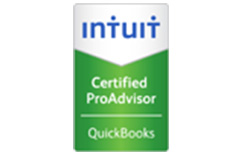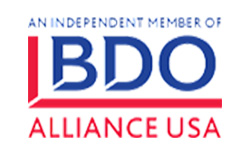Tax Strategies for Individuals
Home » Resources » Guides » Tax Strategies for Individuals » Retirement Assets: Frequently Asked Questions

Retirement Assets: Frequently Asked Questions
Table of Contents
- Will my heirs owe income taxes when they inherit my retirement assets?
- Will my heirs owe estate taxes on inherited retirement assets?
- Is estate tax deferred if my heir gets an annuity?
- How can I minimize or eliminate tax on inherited retirement assets?
- How should I take distributions from my retirement plan?
- When should I take a lump-sum distribution from my retirement plan?
- What should I do about my retirement plan assets in my ex-employer’s plan if I change jobs?
- Can creditors get at my retirement assets?
- How will my state tax affect my retirement withdrawals?
- I understand that I’m required to take money out of my retirement plan after I reach age 73. Why is that?
- How can I continue the tax shelter for retirement plan assets after age 73?
- Suppose there are still retirement assets in my account at my death. Can the shelter continue for those who receive those assets?
- Can moving to another state when I retire save me taxes on my retirement plan?
Will my heirs owe income taxes when they inherit my retirement assets?
Yes, generally under the same rules that would apply to your withdrawals of the same amounts had you lived – unless it’s a Roth IRA. A Roth IRA is exempt from federal income tax if the account was opened five years before any withdrawals. Also, your spouse can roll over your account to their IRA. No early withdrawal penalty applies, regardless of your beneficiary’s age. However, a spouse who rolled over to an IRA may owe an early withdrawal penalty on IRA withdrawals taken before age 59 1/2. Back To TopWill my heirs owe estate taxes on inherited retirement assets?
Your retirement assets will be included in your taxable estate. But because of the currently high estate tax exemption, very few estates have to pay federal estate tax. And assets passing to your surviving spouse (provided he or she is a U.S. citizen) or to charity will be excluded from estate tax. Back To TopIs estate tax deferred if my heir gets an annuity?
No. The estate is taxed on the annuity’s present value. Back To TopHow can I minimize or eliminate tax on inherited retirement assets?
You can minimize or eliminate tax on inherited retirement assets by using the following methods:- Leave them to your spouse. Doing so can eliminate estate tax and help postpone withdrawals subject to income tax – provided your spouse takes no withdrawals before age 59 1/2.
- Leave them to charity. Although there’s no financial benefit to the family, this saves income and estate taxes.
- Provide life insurance to pay estate tax on retirement assets. If estate taxes are a concern, the benefit of this option is that it provides estate liquidity, avoiding taxable distributions to pay estate tax.
How should I take distributions from my retirement plan?
If your assets are in a tax-favored retirement fund such as a defined-benefit pension plan, 401(k) or IRA, you have several distribution options:- Take everything in a lump sum
- Keep the money in the account, with regular distributions or withdrawals on an as-needed / as-required basis
- Purchase an annuity with all or part of the funds
- Take a partial withdrawal (leaving the balance for withdrawal later)
- Make a rollover distribution to another retirement plan
- A combination of any of the above
When should I take a lump-sum distribution from my retirement plan?
Your personal needs should decide. You may need a lump sum to buy a retirement home or business, but be aware of the tax consequences. If your employer requires that you take a lump sum distribution, it may be wise to roll it over into an IRA. Back To TopWhat should I do about my retirement plan assets in my ex-employer’s plan if I change jobs?
There are several things you might do depending upon your needs:- If you don’t need the assets to live on, try to continue the tax shelter and leave the money where it is.
- Transfer or roll over the assets into your new employer’s plan if that plan allows it (this can be tricky, though).
- If you’ve decided to start your own business, set up a new retirement plan and move the funds there.
- Roll them over into your IRA.
Can creditors get at my retirement assets?
In general, employer plans such as your 401(k), IRAs, and pension plan funds are protected from general creditors unless you’ve used these assets as securities against a loan or are entering into bankruptcy. If this is the case, there’s a chance they could be seized, but if the money is in a registered IRA, pension plan, or 401(k), it’s more than likely they will be protected in case of bankruptcy (subject to state and federal law of course). Back To TopHow will my state tax affect my retirement withdrawals?
Each state is different, but in general, consider the following:- While withdrawals are generally taxable in states with income tax, some offer relief for retirement income up to a specified dollar amount.
- If your state doesn’t allow deductions for retirement investments allowed under federal law, these investments and sometimes more may come back tax-free.
- State tax penalties for early or inadequate withdrawal are unlikely.







